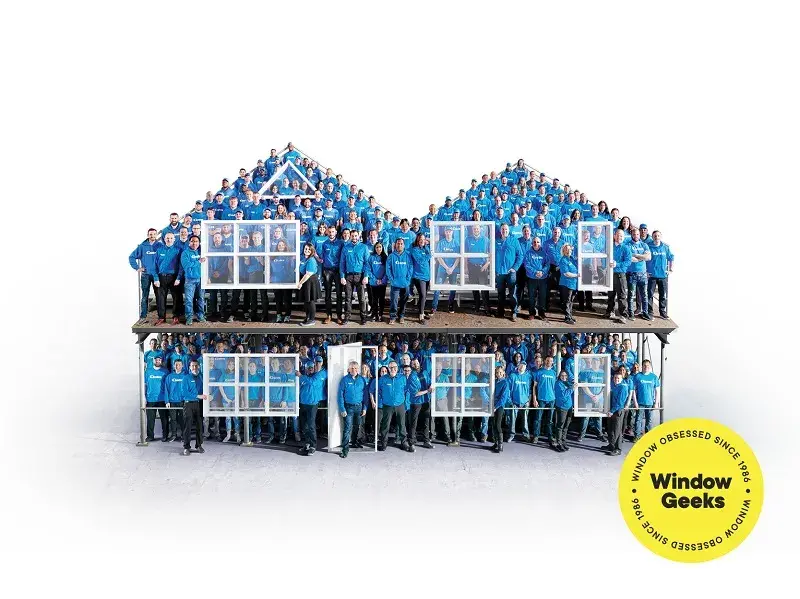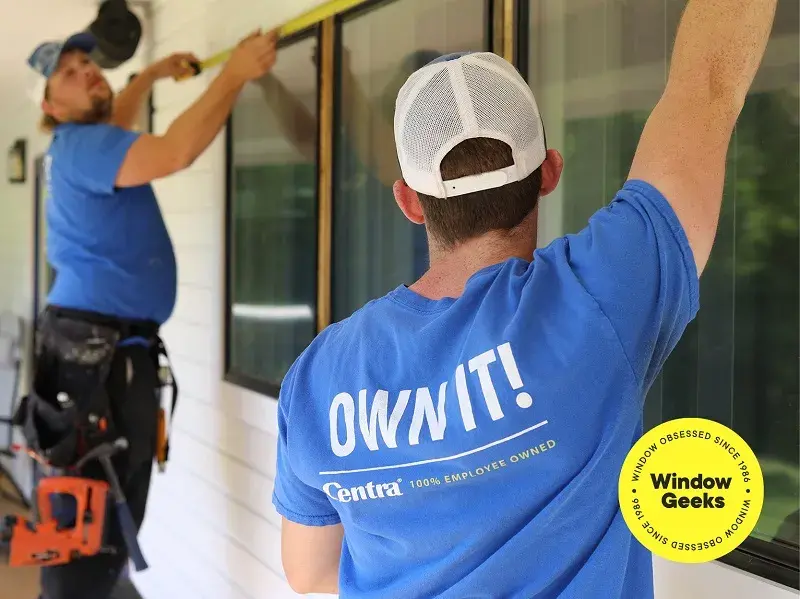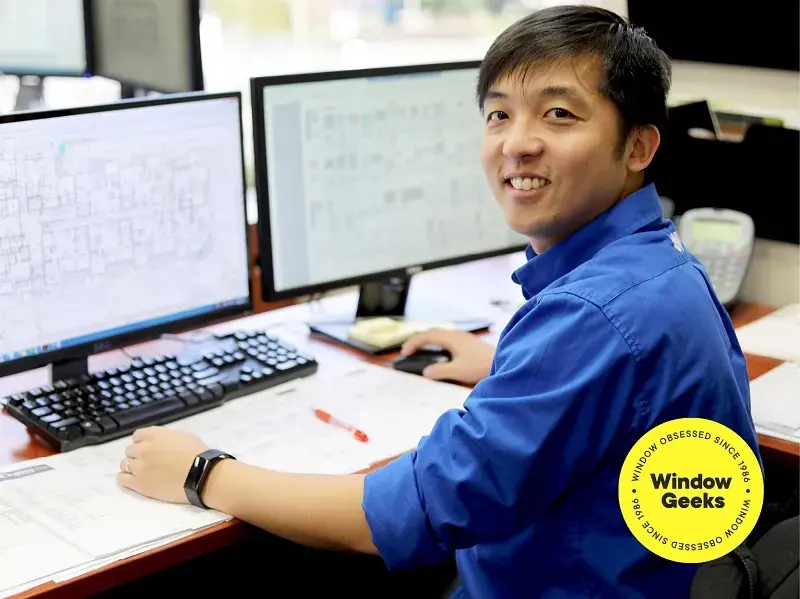Categories
Trending
Comfort Energy Savings In The News
Discover Centra’s Supreme Collection Windows: The Best Option for Comfort and Style
Budgeting Energy Savings
Are Energy-Efficient Windows Worth the Investment?
Comfort Energy Savings
Which Windows Are Most Energy Efficient? An Expert Guide to Save on Energy & Costs
Recommended
Design Energy Savings
Choosing the Right Patio Door for SummerEnergy Savings Featured Projects Strata
Testing the Limits of Energy-Efficiency RetrofitsHot House Solutions: Tips for Cooling Your Home
Heatwaves are becoming more common – and no one likes dealing with a hot house. Our Experts have put together a handy guide featuring some frequently asked questions and top tips for keeping a cool, comfortable home during summer.
Best Practices for Cooling a Hot House
There are a number of ways to regain your home comfort during the warmer months. Let’s take a look at some of the best…
Air Conditioners and Heat Pumps
Air conditioners and heat pumps are, of course, a very effective way to keep your home cooler during a heatwave – but there are downsides, and many homes still don’t have aircon units. Then there’s the fact that plenty of homeowners will have exactly the same idea, and if you’re looking at making the purchase during an actual heatwave, you’re going to have a hard time finding one. You might get lucky and find a portable unit, but they're also less energy efficient than permanent ones, which will drain your wallet even after purchase.
There are a few best practices for homeowners to keep their AC units in working order. It’s important to keep the unit clean and schedule periodic maintenance. Make sure you replace air filters and keep evaporator coils and fins clean. If the unit is external, remove any debris that may have built up during the cooler months. Also, ensure units are level to avoid premature failure of the compressor. If it’s a portable A/C, make sure it is used in the room size it is designed for and keep the interior door closed, otherwise it will be inefficient and is unlikely to be of much help. As an added tip, if you know you’re only leaving the house for a short time, be sure to leave the unit running so your home doesn’t heat up while you’re gone.
If you don’t have a cooling system in the home, there are steps you can take with windows, doors, and fans to make your home more comfortable.
Optimize Windows and Shades
Modern windows shouldn’t necessarily have to be open to cool a house, and at certain times of day, that can even be detrimental. LoE coatings, which are incredibly thin coatings of a material such as silver, reflect heat back to the source. If you have newer windows and the air temperature inside is cooler than that outside, definitely keep them closed and let them continue to do their job. If you’re looking to replace your windows and your house sees a lot of sun, consider having extra coatings applied on south-facing windows.
Shading is a good way to keep the house cooler during the day. External shading devices are preferable. Awnings over the windows can be a major help, and bamboo or wicker blinds that can be hung outside the window and lowered when that side of the home is exposed to sun will also make a difference. Focus on the western and southern elevations of the property for the best cooling effect. Interior shading is a decent alternative, but special shading should be used with caution. Occasionally, using heat-reflective blinds internally with modern coatings can cause heat buildup between the blinds and glass, which on very rare occasions can even cause window frames to deform under the heat.
Use Fans Effectively
Firstly, when buying fans, get multiple. This can be useful even when they’re used in the same room. If you do need to open your windows, you can create a crosswind by putting the fans in different windows. Another placement tip is to have fans lower to the ground. Hot air rises and lower air is cooler, so getting that lower air moving will help make your space more comfortable. Ice can also be useful. Placing a container of ice in front of a fan cools the air around it, and the fan can then blow that cold air around the room. In this case, it makes sense to place the fan higher up.
Manage Home Appliances and Humidity
Electronic appliances are known to give off heat, and while this may not be an issue most of the time, they can contribute to raising the temperature to uncomfortable levels in the warmer months if you’re overusing them. Televisions and computers are good examples. Try not to overuse them when it’s warm and turn them off when they’re not needed to prevent adding to the heat and wasting energy.
Humidity can also be an issue in summer as humid air will hold more heat and raise the apparent temperature, making dry air preferable. It will make you feel warmer when you sweat as your sweat will not evaporate. When sweat evaporates, it takes heat from your body to do so in the form of “heat of vaporization”. If it’s humid outside, it is certainly better to keep your windows and doors closed. Purchase a dehumidifier to help reduce moisture levels, and use extractor fans in bathrooms and kitchens while bathing or cooking.
Encourage Ventilation – The Right Way
If you don’t have high-performance modern windows that are capable of blocking heat, then opening doors and windows can help – but there are specific ways this should be done. Heat rises, so open windows and doors on the lower floor on the cooler side of the house (likely the northern side). On the opposite side of the house, open the windows and doors on the upper floor. This should draw air through the home and better ventilate it.
Additional tips if your home is too hot:
Opening windows at night is a good move, provided outside temperatures have dropped sufficiently. If you have older windows, consider heat films for the glazing. This film won’t bring your windows to the level of their modern counterparts, but it can be a useful stop-gap measure in those very hot months until you’re ready to fully replace them. Another tip is to ensure you have appropriate summer duvets for sleeping to stay cooler at night.
If heatwaves are greatly impacting your comfort and you’re dealing with a hot house, reach out to our Experts for a free consultation on how window replacement can help.
We Are Your Certified Window Geeks!
We love to talk windows! We’re here to help, so if you have a question about your window project all you have to do is reach out. Contact us early in the process so that our experts can make sure everything is correct from the get-go.
For more information on this topic (and many more!) contact our local Employee Owners at 1-888-534-3333 or drop us an email at info@centra.ca. Follow us on Facebook and Instagram to learn more about what's happening with Centra Windows. Join the club and become a Window Geek yourself by signing up for our newsletter, which provides news, advice, and tips about the window industry and upcoming events, and test your window knowledge by following us on LinkedIn.



